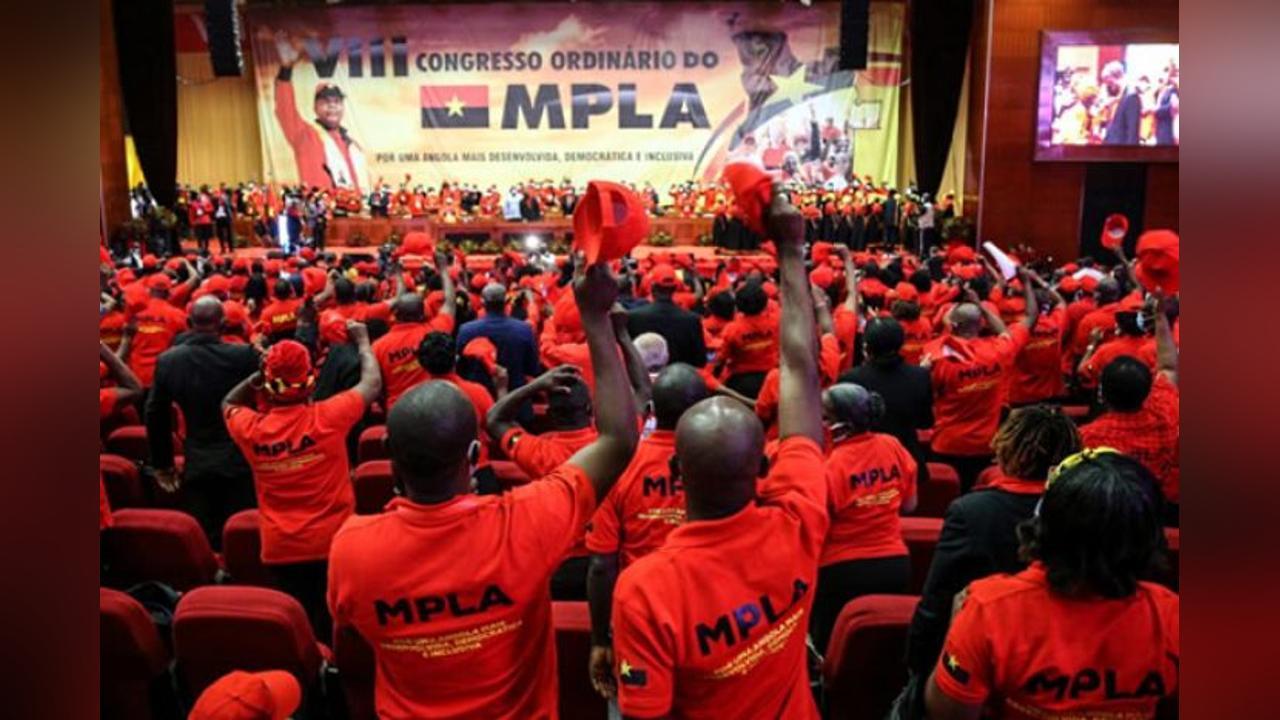Africa-Press – Angola. Common opinion tells us that there are two ways to choose the next MPLA candidate for the Presidency of the Republic. Firstly, by holding primary elections, in which all those interested in running for office present themselves to be chosen by the party’s rank and file.
Secondly, the nomination of the current party president, which is approved by the statutory bodies. We can say that the first formula is the one preferred by the internal opposition to João Lourenço and the second is the one officially adopted by its leadership.
In fact, the desire to hold primary elections or to affirm the various defined and alternative tendencies within the MPLA is not new in the party, but it has ended in expulsions and deaths.
We remember the uprisings of 1974, which took on a role of dissent and the search for different solutions within the MPLA – in fact, within the framework of a triple split that had begun in 1972. The best known was the Revolta Activa, led by Gentil Viana, Mário Pinto de Andrade, Adolfo Maria and Floribert Monimambo (military commander). The second was the Eastern military rebellion, led by commanders Katuva Mitue and Gibóia, who were both shot. This rebellion came to be known as the Eastern Revolt, and was later politically taken over by Daniel Chipenda – at the request of Kenneth Kaunda, then president of Zambia.
Three years later, a new attempt at dissent or internal change within the MPLA led to the massacres of 27 May 1977. From then on, there was always an iron hand, even if lined with velvet, that prevented threats to the arbitrary power of the MPLA president. History was responsible for prohibiting internal dissent, the pluralism of ideas and internal democracy.
However, reality is always stronger than the determination of anyone’s will.
In fact, what we are experiencing at the moment in the MPLA is the fear of potential alternative leaderships and the lack of vision for the future of the country after 2027. The issue is that the current system of power established by the MPLA has expired.
There are no movements to prepare any primaries, and we are waiting for João Lourenço to indicate his successor, which is not very useful. We always wait until the last minute to choose people, but, although this may have worked in the past, there are no objective conditions for such a pace now. Society does not accept the rejection of the pluralism of ideas and political agendas capable of formulating a common vision for the good of Angola.
There is a movement of several names that are being considered for the succession race, but they are pretending that they are not and that this race does not exist. The fact is, however, that the race is on, and each one is putting their pieces in place. They are published books, appearing on television, interacting with the people, and discreet increases in participation on social media. They are there: the names of some of the possible candidates for president of the MPLA and, consequently, of the Republic are being publicly mentioned: Adão de Almeida, Manuel Homem, Higino Carneiro, Fernando Dias dos Santos (Nandó), Mara Quiosa, Boavida Neto, among others. They are gathering support and/or suffering attacks to discredit them; some are more active than others. Some are working on the ground, others are hesitant.
José Eduardo dos Santos has unquestionably indicated his successor. João Lourenço may follow the same path, but due to internal resistance within the MPLA, stemming from the perception of his electoral unpopularity, he will likely face major opposition once his departure due to term limits is confirmed. The political dynamics today are very different from those that prevailed ten years ago. There is a lot of discussion on social media and in WhatsApp groups, and people have raised their expectations enormously.
The restlessness is great.
The fact that it was realized that it was possible, in part, to dismantle the system of power established by José Eduardo dos Santos leads most political actors to believe that the same can be done in relation to any system of power that João Lourenço has set up. Therefore, most likely, his figure will not be included in the post-2027 calculations.
There are two phenomena. First, the role played by social networks in shaping public opinion and the two decades of peace. Second, the perception that personalized power systems are not eternal, as was seen with José Eduardo dos Santos. This implies that, beneath the secrecy and in the discreet corridors of power, there is a much greater propensity for conspiracy and backroom deals.
At this time, many MPLA leaders could be candidates for President of the Republic. The curiosity is whether, as in the papal conclaves, a totally unexpected candidate will emerge, confirming the saying “popes come in, cardinals go out”. João Lourenço surprised everyone when he chose Esperança Costa as his vice-president of the Republic and Mara Quiosa as his MPLA vice-president. Nobody expected it. It could be that, this time, the MPLA or some movement outside the formal structures of the party surprises Lourenço, or that the situation remains unchanged, or that it becomes even worse for the Angolan people.
angola24
For More News And Analysis About Angola Follow Africa-Press






